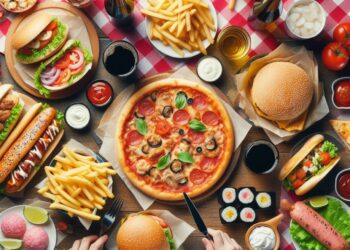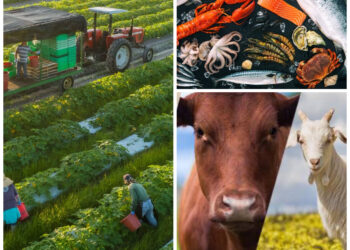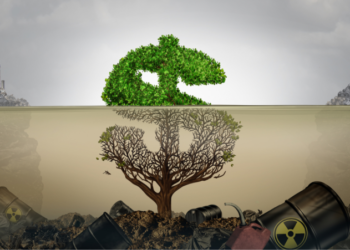It was a beautiful day and I was happy to buy my favourite fruits and vegetables as well as being done with a week of grocery. But suddenly I felt guilt while washing the fruits and putting them in refrigerator as I was staring at polythene bags left behind. There were about a dozen of plastic bags that were usable few moments earlier but now lying useless in my kitchen’s dustbin.
Waste management is the big issue
As per the Plastic Waste Makers Index 2023 of Minderoo’s foundation, additional 6 MMT of single use plastic waste was generated in 2021 compared to 2019 and majority of it was virgin plastic. The most disturbing scenario is the poor management of plastic waste as currently very less is recycled or disposed off whereas more than 50% of it is mismanaged. The chemicals released by single-use plastics are basically endocrine disruptors and responsible for imbalance of reproductive hormones in humans. Apart from leaching the chemicals in the environment, single use plastics generate millions of microplastic particles; whose ill-effects are going to haunt mankind and other living-organisms for generations.
GHG emissions
There is no denial that plastic waste management is a herculean task but manufacturing and supply chain of plastics is also heavily dependent on fossil fuels. Can you believe that in 2021, greenhouse gas emissions from single-use plastics was around 450 MMT and it is more than total GHG emissions of United Kingdom in the same year. As per the current scenario, plastics alone will be responsible for 10% of GHG emissions by 2050.
Impact on marine life
Marine ecosystem is most vulnerable as once plastic enters the ocean, it is impossible to retrieve it as waves and currents carry it to deeper trenches and even uninhabited areas. Around 1,00,000 marine mammals and a million of sea birds die each year due to dumping of plastics in oceans. In 2019, it was surprising and horrifying at the same time to witness the presence of 40 kg of plastics in the stomach of a whale. It is shameful that our co-habitants on this earth are paying the price for our luxuries and comforts.
Sea turtles confuse plastic bags with jellyfish and fishing nets with seaweed which makes their stomach full and they ultimately die due to starvation. It has been researched that almost all of the turtle species in Pacific and Atlantic ocean have traces of microplastics in their gut along with hundreds of edible fishes.
New treaty on the way?
It was in March 2022 when a historic resolution was passed at United Nations General assembly to end plastic pollution and craft an international binding agreement by 2024.
An intergovernmental negotiation committee (INC) has been formed for the same which will release three draft resolutions before finalising the treaty. Though the negotiations are underway, United Nations Environment Programme being the host of INC has published a report named “Turning off the tap” in May 2023. The report has focused on the need of circular economy in order to obtain sustainability in production and consumption of products. Circular economy involves less waste generation and GHG emissions with strong possibility of reuse and recycle of the products in order to reduce the plastic waste. The report has also put forward the idea of reorienting and diversifying the plastic products with sustainable alternatives.
Indeed some action is needed
I wonder sometimes if reading the reports and getting surprised at the data is going to solve the crisis we are talking about? Well, definitely not, reports and data is there for awareness and when we are aware enough, obviously the next step should be the action. Being aware and doing nothing for betterment is a crime.
Though governments around the world are making laws to phase out plastics and some companies are also using recycled and sustainable products in packaging and manufacturing as well. We need to pay attention to our duties as individuals. “How merely my actions will make any difference?”, it is time to leave behind this thought. Because it will make a difference when individual actions are combined into community actions and we have to take this responsibility to maintain hospitable status of our planet.
The first step to manage plastic waste is obviously replacing the plastics from our daily life wherever it is possible. It will be quite challenging as plastics are the pinnacle of our disposable waste culture. A great start can be made with using carry bags made of cloth while buying the grocery items. Plastic cutlery is used in almost every small celebration or big gathering at our homes and we can easily replace it with wooden cutlery and if feasible, steel forks and knives are the best option. Using ceramic or glass containers in kitchen and carrying your own water bottle will be big leap towards sustainability.
It will be challenging but not impossible. It is like “Things we do for love” as we are actually doing it for our future generations.
References:









